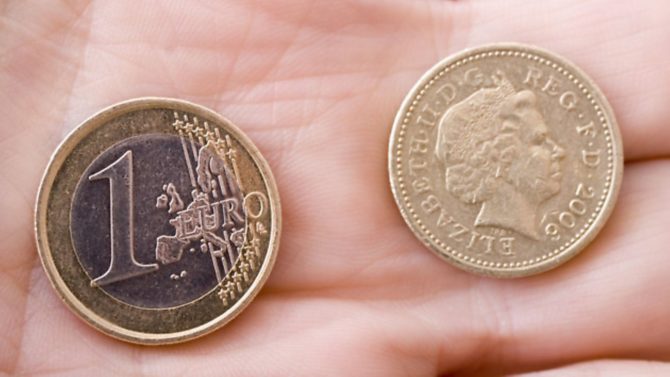French currency exchange explained

A penny saved is a penny earned, and by planning your currency exchange now you could have more euros to spend on a property in France next year, as Laura Parsons demonstrates
The New Year is often the time we choose to make fresh starts. Sometimes that fresh start stems from something simple (like sticking to that healthy eating plan) but you could also be planning something more life altering – like a move overseas.
France remains one of the most popular emigration destinations for UK expats, and for good reason. The nation has a huge amount to offer, from its rich culture and gastronomic heritage to its varied landscape, iconic landmarks and healthy lifestyle. Its close proximity to the UK is also a bonus. That being said, whether you’re moving thousands of miles or just across the English Channel, relocating overseas is a serious undertaking.
If you’re planning a move to France in 2015 you may have started planning certain aspects of your emigration, like looking for work, learning the language or deciding where you’re going to live. Something you may not have started considering is how you are going to move your money overseas, but taking a proactive approach in this area could save you thousands of pounds – money which could be spent on getting your move to France off to the best possible start.
The majority of people have had to deal with foreign currency exchange at one time or another, when taking a holiday abroad or going on an overseas business trip, for example. While the trading of one currency for another seems like a fairly straightforward process, exchange rates are highly volatile, and when you’re transferring large sums of money overseas it really pays to do some research into the most cost-effective way of conducting the transaction.
Added value
Large financial institutions and major banks trade currencies on the interbank market, the top tier of the foreign exchange market. However, the interbank exchange rate isn’t available at a commercial level. Banks have been transferring funds overseas for decades and it’s easy to assume that they will offer the most straightforward and financially rewarding service – but this isn’t necessarily always the case.
In recent years, other more flexible options for moving funds abroad have established themselves, including currency brokers. Leading currency brokers work on smaller margins than banks and so are able to offer exchange rates that are up to 3% better. This can mean the difference of thousands on larger transactions.
For example, if you need to transfer £200,000 to France to fund a property purchase a bank may secure you an exchange rate of 1.24 euros per pound, giving you €248,000. A currency broker, meanwhile, could process your transfer at a rate of 1.27 euros per pound, which would give you €254,000. That extra €6,000 could go a long way to helping your move to France get off the ground.
Looking after the pennies
Furthermore, with a currency broker you have the option of fixing a favourable exchange rate well in advance of a trade. So if you’re planning a move to France in 2015, you can take advantage of any weakness in the euro (or strength in the pound) by locking in that exchange rate now and getting the most for your money several months down the line.
In September the European Central Bank unexpectedly cut interest rates and introduced new policy measures, causing the euro to plummet against currency rivals like the pound. Using a currency broker to set up a forward contract means you could secure that rate, so even if the euro recovered over the following months, you’d still get the best deal when you move your money.
The savings might not be as dramatic on smaller transactions but if you’re moving money abroad on a regular basis, such as transferring your wages every month, securing a more competitive exchange rate can really pay off in the long term. Additionally, most banks add on transfer fees of between £10 and £40 to every transaction, meaning you could be forking out hundreds of pounds in additional costs over the course of the year.
Another benefit of arranging your foreign currency transfer long before your move is that you’ll have access to the expert guidance and support that currency brokers are able to provide. Some leading brokers will even assign their clients a dedicated, personal account manager. With an intimate knowledge of market movements and currency trends, these account managers are able to offer invaluable insight, helping you make your transfer at the most lucrative time.
Your move overseas may also make it necessary to set up a regular overseas payment account. This service ensures that your monthly or quarterly currency transfers are made swiftly, securely and automatically on a day of your choosing, at a competitive rate of exchange and with no transfer fees or commission costs.
By adopting a proactive approach to your one-off or regular foreign payments and using a currency broker to handle transfers, you can stay in complete control of your outgoings and save a significant amount of money.
So, if you’re moving to France in 2015, taking the time to look into your foreign currency exchange options early on could make your relocation go more smoothly and leave you with more money for starting your new life.
Laura Parsons is a currency analyst with TorFX
Tel: 0800 612 9625
Share to: Facebook Twitter LinkedIn Email


